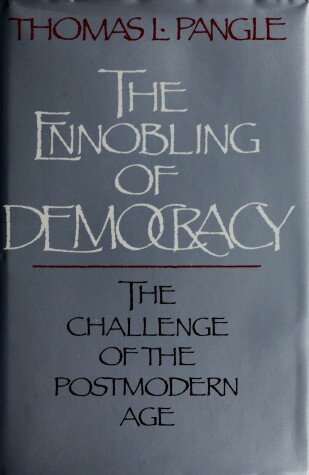The Johns Hopkins Series in Constitutional Thought
2 total works
Focusing on Lyotard, Vattimo, and Rorty, The Ennobling of Democracy offers a searching critique of postmodernism and its implications for political life and thought. Pangle carefully examines the political dimensions of postmodernist teachings, including the rejection of the natural-rights doctrines of the Enlightenment, the discounting of public purposefulness, and the disenchantment with claims of civic virtue and reason. He argues that a serious challenge has been posed to postmodernism by the emerging democracies of Eastern Europe, which have directly experienced heroic political leadership, maintained a prominent place for religion, and preserved a belief in the virtues and duties of citizenship. They consequently make demands on Western thought that postmodernism has been unable to meet.
Drawing on the classical republican ideal, Pangle opens the door to a bold new synthesis in political philosophy. He argues that by reappropriating classical civic rationalism--and especially classical philosophy of education--a framework may be established to integrate the most significant findings of modern rationalism into a conception of humanity that encompasses, in an unprecedented way, the entire scope of the human condition.
"Pangle's argument forces me to articulate and deepen my own views. The book, consequently, is a fine example of the dialectic which it is part of Pangle's purpose to defend, and will makean important contribution to civic education."-- Wilson Carey McWilliams, Rutgers University

